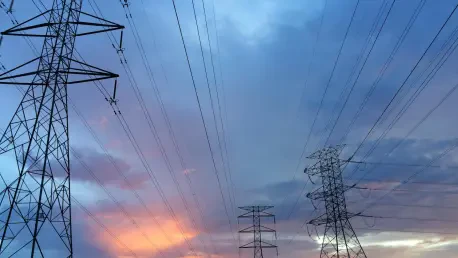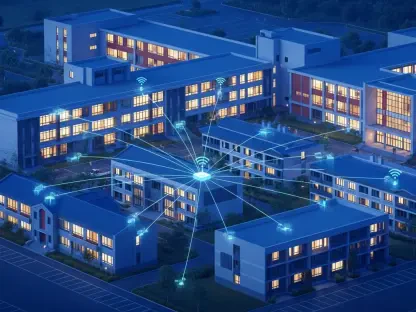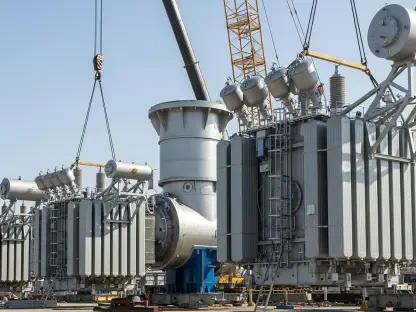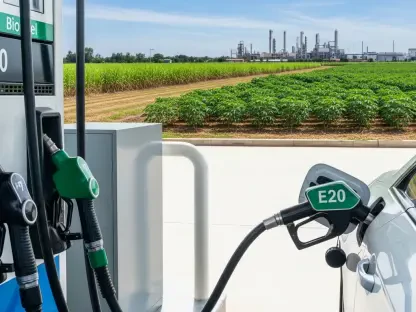In a nation of over 200 million people, the persistent struggle for reliable electricity remains a defining challenge for Nigeria, where ambitious policy reforms stand in stark contrast to the daily reality of frequent blackouts and limited grid access. Despite high rankings in African electricity regulatory indices, the country faces an uphill battle to translate these frameworks into tangible improvements. Millions of citizens and businesses endure the economic and social toll of an energy deficit that ranks among the largest globally. This article explores the significant strides made in restructuring the power sector, the deep-rooted barriers that continue to hinder progress, and the potential pathways to bridge the gap between regulatory promise and dependable service delivery.
Regulatory Successes Amidst Ongoing Struggles
Policy Frameworks and Rankings
Nigeria’s electricity sector has garnered commendable recognition for its regulatory framework, as evidenced by strong scores in the African Development Bank’s 2024 Electricity Regulatory Index Report, with a governance score of 0.897 and a regulatory substance score of 0.843. These figures reflect a well-structured legal foundation, including defined tariff methodologies and consumer protection rules that position Nigeria as a leader among 43 African nations. Ranking 15th overall, the country demonstrates a clear commitment to creating an environment conducive to power sector growth. Yet, this success on paper often feels distant to the average citizen, who continues to grapple with inconsistent supply and high costs. The disparity between policy strength and practical outcomes underscores a critical need to focus on implementation strategies that can match the ambition of these reforms.
Beyond the impressive rankings, the regulatory framework’s robustness stems from comprehensive guidelines that aim to ensure transparency and accountability within the sector. Tools such as structured tariff systems and legal mandates provide a blueprint for sustainable development, signaling to investors and stakeholders that Nigeria is serious about reform. However, high scores in governance do not automatically translate into reliable electricity for households and businesses. The challenge lies in moving beyond theoretical excellence to address the operational and logistical hurdles that prevent these policies from benefiting the population at large. Bridging this divide requires not only maintaining strong regulatory standards but also ensuring that enforcement mechanisms are effective and adaptable to local contexts.
Decentralization Milestone
The 2023 Electricity Act represents a transformative shift in Nigeria’s power sector by decentralizing governance and empowering state governments to generate, transmit, and distribute electricity within their jurisdictions. By mid-2025, ten states had already enacted their own electricity market laws and established regulatory bodies, marking a significant step toward addressing localized energy needs. This reform aims to tailor solutions to specific regional challenges, potentially accelerating access in underserved areas. However, the move also introduces complexities, as varying state capacities and resources could lead to uneven progress across the country. The success of this decentralization hinges on how well states can navigate these new responsibilities while aligning with national objectives.
While decentralization offers a promising avenue for innovation, it also raises concerns about coordination and regulatory consistency across Nigeria’s diverse regions. Without a unified approach, there’s a risk of fragmentation, where some states may thrive while others lag due to limited technical expertise or funding. The federal government must play a pivotal role in providing guidance and support to ensure that state-level initiatives complement the broader national energy strategy. Additionally, building capacity at the state level through training and resource allocation will be crucial to prevent disparities in service delivery. If managed effectively, this reform could mark a turning point, bringing power closer to the people who need it most, but it demands careful oversight to avoid creating new inefficiencies.
Persistent Challenges in Power Delivery
Access and Reliability Issues
One of the most glaring issues in Nigeria’s electricity sector is the staggering access gap, with approximately 85 million citizens remaining off the grid, contributing to one of the largest energy deficits in the world. Despite a generation capacity ranging between 12,000 and 13,500 megawatts, only about 4,500 megawatts were delivered in recent years, a figure woefully inadequate for a population of this size. This shortfall leaves millions in darkness, unable to power homes, schools, or businesses, and perpetuates a cycle of economic stagnation. The disparity between potential and actual output highlights systemic failures that go beyond mere numbers, affecting the quality of life and hindering national development on multiple fronts.
Compounding the access issue is the persistent unreliability of electricity supply, with some regions experiencing over 32 outages per month, positioning Nigeria among the least dependable power suppliers globally. These frequent disruptions impose significant costs on businesses, which often resort to expensive diesel generators to maintain operations, thereby inflating production expenses and reducing competitiveness. For households, the lack of consistent power disrupts daily routines, from education to healthcare, underscoring the urgent need for solutions that prioritize stability. Addressing this reliability crisis is not just a technical challenge but a socioeconomic imperative that could unlock vast potential if tackled effectively.
Systemic and Financial Barriers
At the heart of Nigeria’s power delivery struggles lie systemic issues such as aging infrastructure, vandalism, and technical inefficiencies that severely limit the sector’s ability to meet demand. Many transmission and distribution networks are outdated, unable to handle modern loads or resist frequent breakdowns, while acts of sabotage further exacerbate supply disruptions. These challenges are not merely operational but reflect a broader need for modernization and security measures to protect critical assets. Until these foundational weaknesses are addressed, even the most progressive policies risk falling short of delivering the intended impact on electricity access and reliability for the population.
Financial instability adds another layer of complexity to the sector’s woes, as distribution companies often recover only about half of their owed revenues due to poor tariff collection and widespread losses. This chronic shortfall hampers their ability to invest in necessary upgrades or maintenance, perpetuating a vicious cycle of underperformance and consumer dissatisfaction. The lack of funds also deters private investment, which is critical for scaling up capacity and improving service quality. Tackling this issue requires innovative approaches to revenue collection, perhaps through technology-driven metering systems, alongside policies that incentivize payment compliance. Without a stable financial backbone, the sector’s aspirations for growth and reliability remain at risk of stalling indefinitely.
Pathways to Sustainable Progress
Coordination and Reform Strategies
Turning Nigeria’s regulatory promise into reliable power delivery demands a coordinated effort between federal and state governments to prevent fragmentation in the wake of decentralization. The Nigerian Electricity Regulatory Commission (NERC) must be granted full independence to enforce fair tariffs and protect consumer interests without political interference. Aligning state-level policies with national standards will help maintain consistency, ensuring that no region is left behind due to capacity gaps. Moreover, fostering dialogue among stakeholders can create a unified vision for the sector, where reforms are not just enacted but actively monitored for effectiveness. This collaborative approach could serve as the bedrock for transforming the power landscape into one that truly serves its people.
Beyond policy alignment, there’s a pressing need to build robust enforcement mechanisms that hold utilities and regulators accountable for service delivery outcomes. Strengthening NERC’s autonomy would enable stricter oversight of distribution companies, ensuring they meet performance benchmarks while safeguarding consumers from unfair practices. Additionally, state governments must be equipped with the technical expertise and resources to manage their electricity markets effectively. This might involve federal support in the form of training programs or funding initiatives tailored to local needs. By fostering a culture of accountability and capacity building, Nigeria can begin to close the gap between its high regulatory rankings and the everyday experience of unreliable electricity supply.
Infrastructure and Collaboration Focus
Investing in infrastructure upgrades stands as a critical pillar for achieving sustainable progress in Nigeria’s electricity sector, addressing the root causes of supply disruptions like outdated systems and technical losses. Modernizing transmission and distribution networks to handle greater capacity and resist wear is essential, as is securing these assets against vandalism through enhanced surveillance and community engagement. Such improvements require substantial funding, but they promise long-term benefits by reducing outages and expanding grid access to underserved areas. Prioritizing these upgrades can create a ripple effect, boosting economic activity and improving quality of life for millions who currently lack dependable power.
Collaboration with international partners and investors also plays a vital role, but it must be underpinned by strict accountability to ensure that resources translate into measurable results. Development partners can provide technical expertise and financial support for large-scale projects, while private investors might drive innovation in areas like renewable energy integration. However, clear benchmarks and transparency are necessary to prevent mismanagement of funds or misaligned priorities. By tying international support to specific outcomes—such as increased generation capacity or reduced outage frequency—Nigeria can maximize the impact of external assistance. This strategic partnership, combined with a consumer-centric focus, offers a viable path to finally align the country’s regulatory achievements with the reality of reliable electricity for all.









